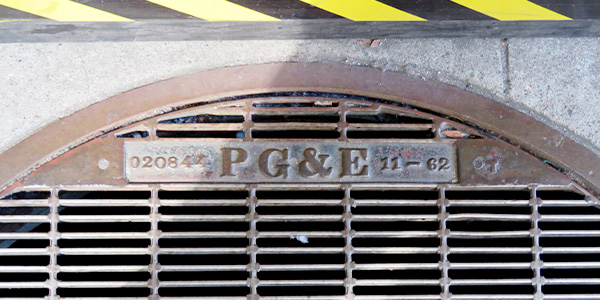
PG&E emerged from bankruptcy in June after a settlement with fire victims that gave them a 22% equity stake in the state’s largest utility.
“With a full quarter behind us after the bankruptcy, we’re now very focused on executing well on the operational and financial plan we set out,” interim CFO Chris Foster said. “We have a strong earnings projection ahead of us supported by regulatory outcomes … and we are excited about the long-term opportunities provided by our state’s focus on clean energy technology.”
PG&E recorded GAAP earnings of 4 cents/share for the third quarter, compared to losses of $3.06/share for the same period in 2019. Non-GAAP core earnings were 22 cents/share compared to $1.11/share.
In the second quarter, PG&E reported GAAP losses of $3.73/share, driven mainly by $2.5 billion in costs to exit bankruptcy and help pay for the 2019 Kincade Fire. (See PG&E Reports Steep Q2 Loss on Bankruptcy, Fire Costs.)
On Thursday, PG&E said it had upped its estimates for the costs of the Kincade Fire, an October 2019 blaze not covered by bankruptcy settlements, to $170 million. The cause remains under investigation by the California Department of Forestry and Fire Protection (Cal Fire), though early indications were that the fire started beneath a PG&E transmission line running from a geothermal plant north of the Napa and Sonoma valleys.
PG&E said it had not de-energized the line because the weather conditions at the time did not meet the criteria in its public safety power shutoff (PSPS) protocols.
Analysts on Thursday’s call also asked about the Zogg Fire, a deadly blaze near Redding that started in late September. Cal Fire seized a portion of a PG&E distribution line in its ongoing investigation of the wildfire. PG&E said Thursday that line had also remained energized because of a relatively low wind speed forecast at the time. (See PG&E Line Was Active when Zogg Fire Started.)
The 2019 and 2020 fires hang over PG&E’s head, along with memories of last year’s PSPS events that drew severe criticism from the public and elected officials.
In fall 2019, PG&E blacked out 2.4 million residents, often without sufficient warning and without providing information about when power might be restored. The company’s websites crashed under a heavy surge, requiring emergency intervention by state agencies. (See California Officials Hammer PG&E over Power Shutoffs.)
This year PG&E promised “smaller, shorter and smarter” shutoffs, with ample public notice and quicker restoration. It gave at least 48 hours’ notice of possible blackouts, and it moved its websites from its data center to the cloud, with testing to make sure the servers could handle heavy traffic, interim CEO Bill Smith said in the call with investors.
The company also set a goal of reducing the number of customers impacted by one-third from last year and met that mark in the five PSPS events it has instituted this year, Smith said. In its latest PSPS event on Sunday and Monday, PG&E blacked out 345,000 customers in portions of 34 counties but restored power to almost all by Wednesday.
Another criticism from last year was that PG&E had not set up a sufficient number of community centers where those who lost power could receive aid. Smith said this year PG&E made 50 centers available to 172,000 residents versus 80 centers for 1 million residents last year.
Despite the utility’s reported efforts, its lagging stock price didn’t move much Thursday. It opened trading at $9.64/share and closed at $9.75/share. PG&E stock was worth more than $70/share before its equipment started the wine country fires of October 2017.




